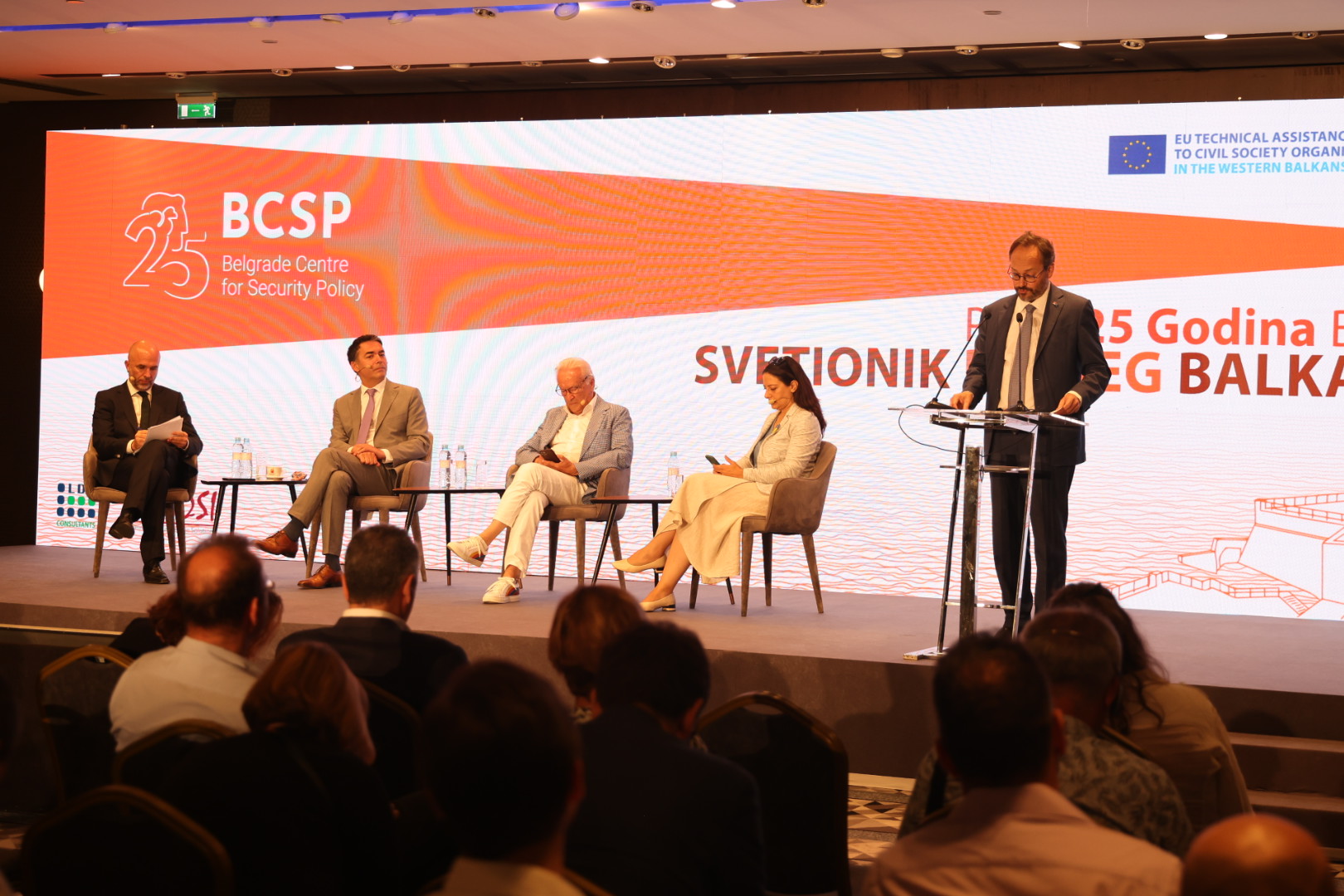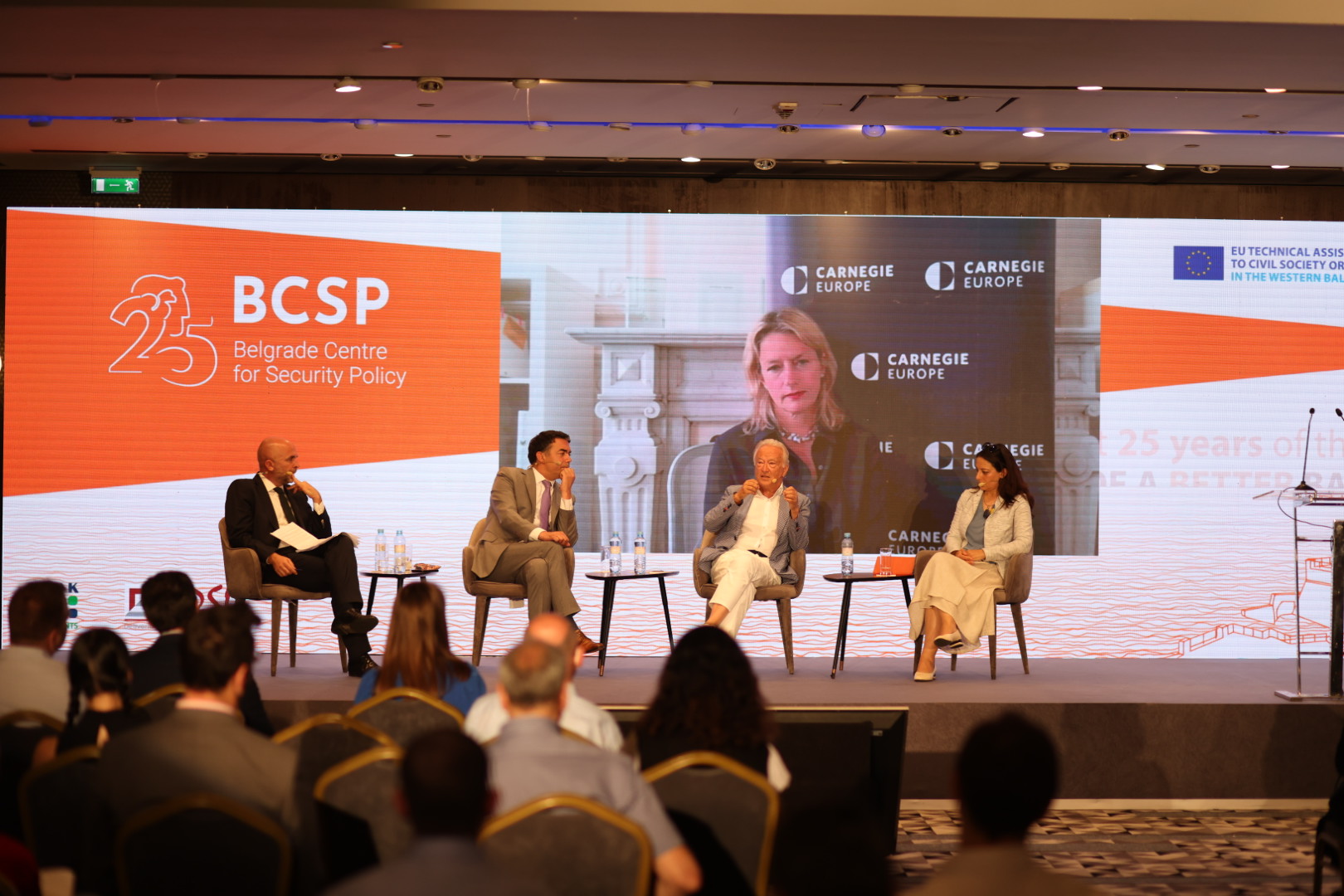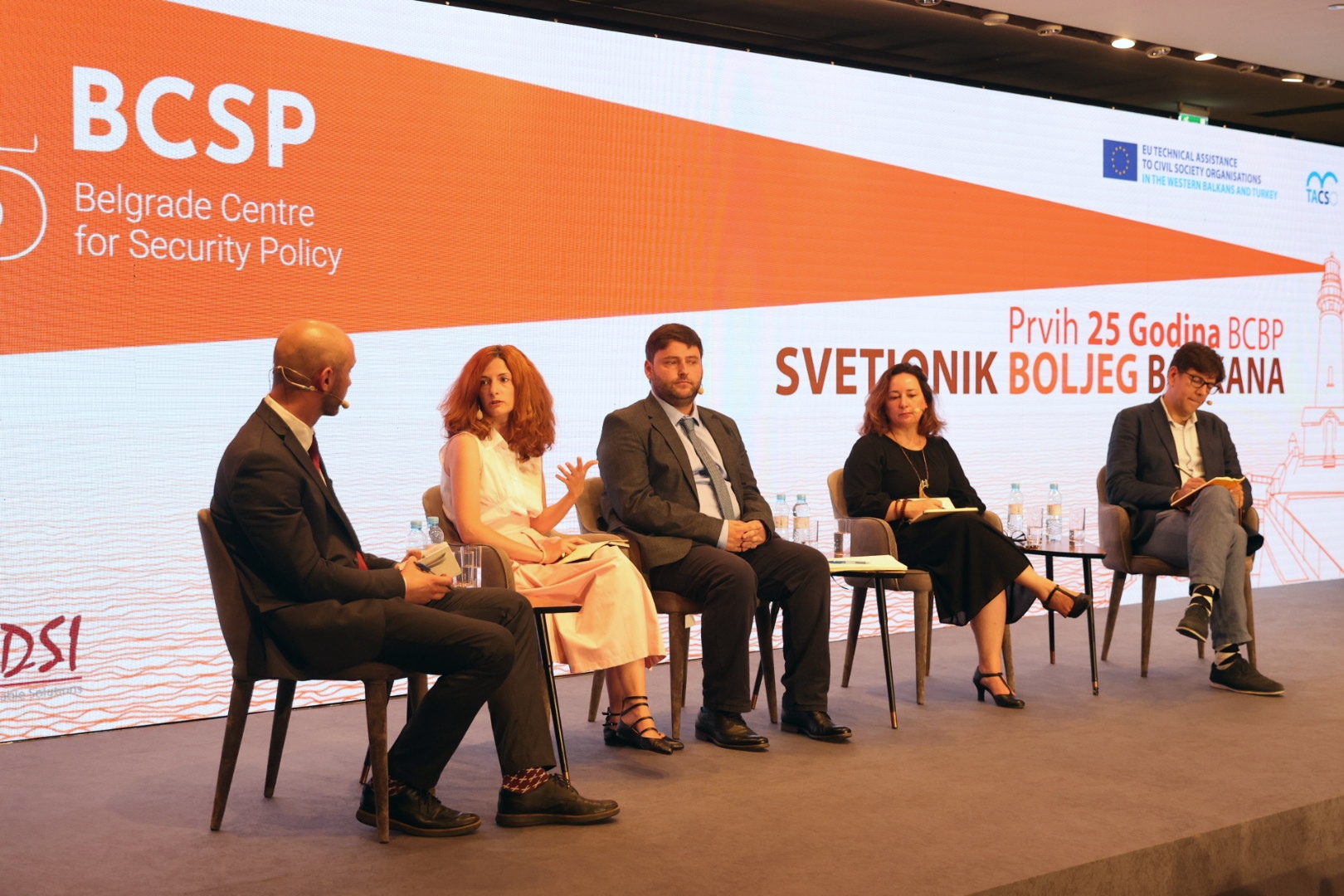
On 27 and 28 June 2022 the conference “Lighthouse of a Better Balkan- Moving the Western Balkans towards European foreign and security policy” was organized by the Belgrade Centre for Security Policy and supported by EU TACSO 3. The event was organised on the occasion of marking 25 years of Belgrade Centre for Security Policy (BCSP) work and it provided an opportunity to consolidate long-standing partnerships between BCSP and other Western Balkans think-tanks specialised in security policy within the Balkan Security Platform.

The conference brought together civil society from the region and EU and world experts in foreign and security policy. It was attended by 76 participants in person and 17 joined via Zoom. The first panel “How to Make Balkans Better?” was opened by Igor Bandović, Director of Belgrade Centre for Security Policy and moderated by Bojan Elek, Senior Researcher in Belgrade Centre for Security Policy. The panellists Biljana Đorđević, Ne davimo Beograd (Serbia); Adnan Ćerimagić, Senior Analyst for the Western Balkans at European Stability Initiative; Engjellushe Morina, Senior Policy Fellow, European Council on Foreign Relations and Goran Buldioski, Director, Open Society Initiative for Europe, addressed issues such as the place of the Western Balkans in the new geopolitical landscape and how to return the region to the path of democratization and improvement of bilateral relations. The lack of decision-making at the EU-Western Balkans summit held recently may have negative consequences for the countries of the region, is one of the conclusions of the panellists. They also warned that the Western Balkans six are in a situation that the German head of diplomacy, Annalena Baerbock, assessed in March as “disappointment and neglection from the EU”.

The second panel “Moving Western Balkans towards European Foreign and Security Policy” was opened by H.E. Emanuele Giaufret, Head of the Delegation of the European Union in Serbia. Mr. Giaufret said that, since the Russian invasion of Ukraine, the members of the Union showed unity and determination to adopt six packages of sanctions against Moscow, at a high price for European citizens, in order to peace, stability and democracy to be preserved. He welcomed the fact that EU partners in the Western Balkans, including Serbia, in international forums, joined the EU and clearly condemned Russian aggression in Ukraine and that EU would like to see Serbia demonstrate the values of the EU in these difficult times and agree with the positions EU, and that it would be an opportunity to strengthen ties within the European family.

Moderator of the panel Srdjan Cvijić, Senior Policy Analyst, Europe, Open Society Foundations and panellists: Nikola Dimitrov, Former Minister of Foreign Affairs, North Macedonia; Hannes Swoboda, President of the Vienna Institute for International Economic Studies; Rosa Balfour, Director of Carnegie Europe and Oana Popescu Zamfir, Director of Global Focus discussed the response of the West and the Western Balkans to the Russian aggression in Ukraine; foreign policy and security conditionality in the EU accession process; energy supply and the overall global and EU challenges.
After the public part of the event members of the Balkan Security Platform continued with sessions dedicated to developing the joint advocacy plan for engaging EU audience on relevant foreign and security issues related to Western Balkan and joint strategic plan of Balkan Security Platform for further cooperation on regional security issues. International Advisory Committee of Belgrade Centre for Security Policy has been formed, consisting of 16 internationally recognized researchers, professors, representatives of the think-tank community, former officials – experts in international relations, defence, security and the rule of law.
